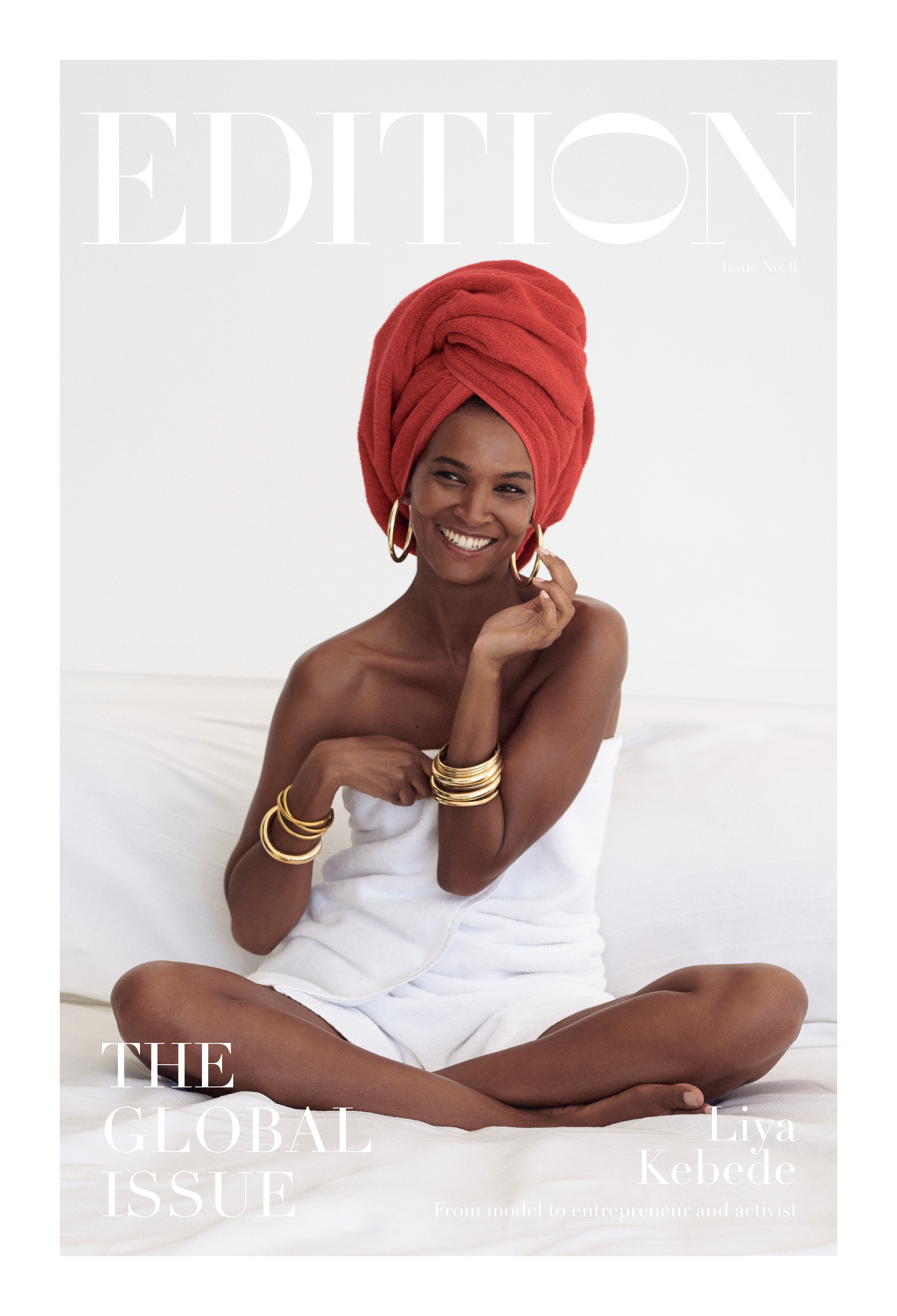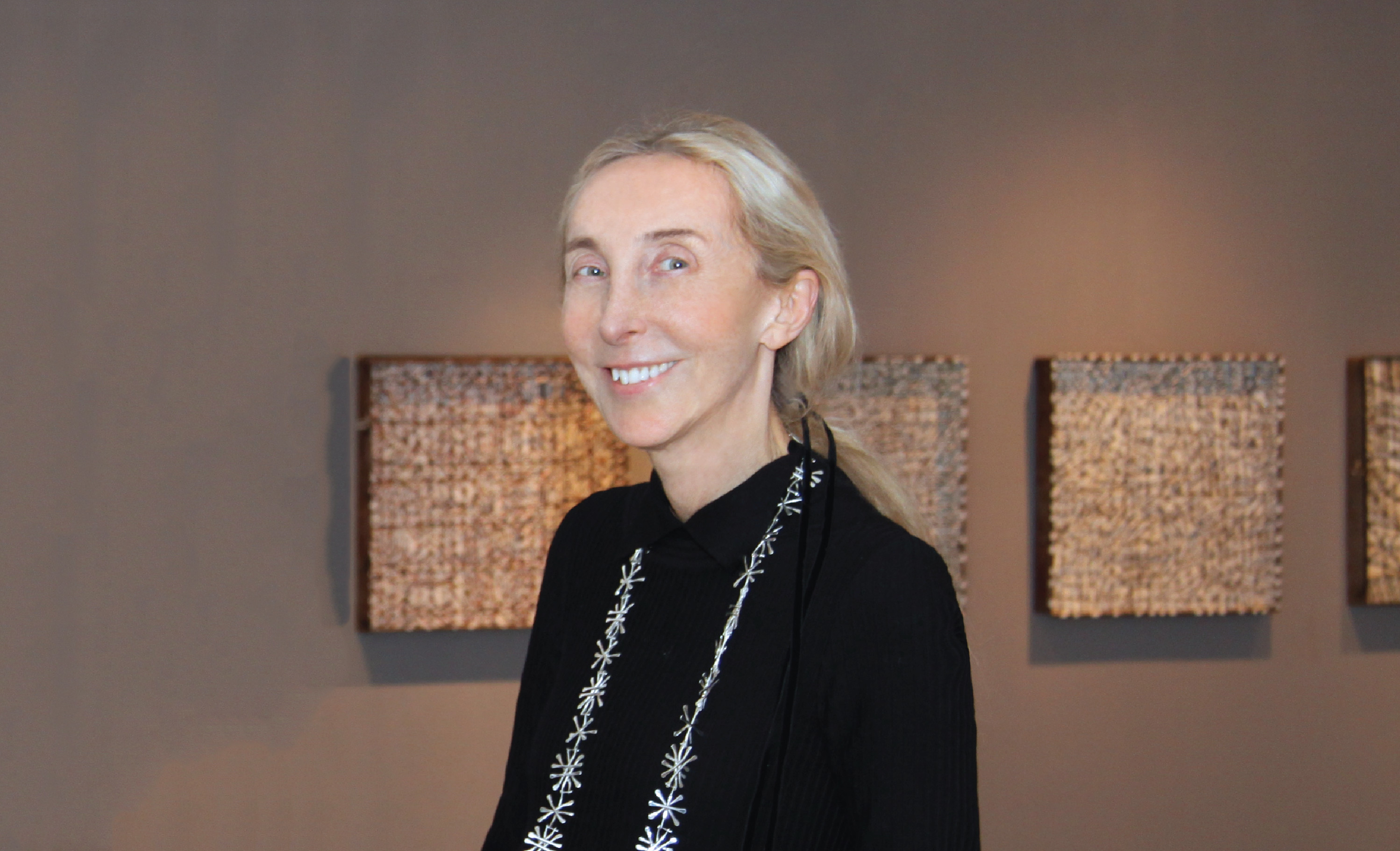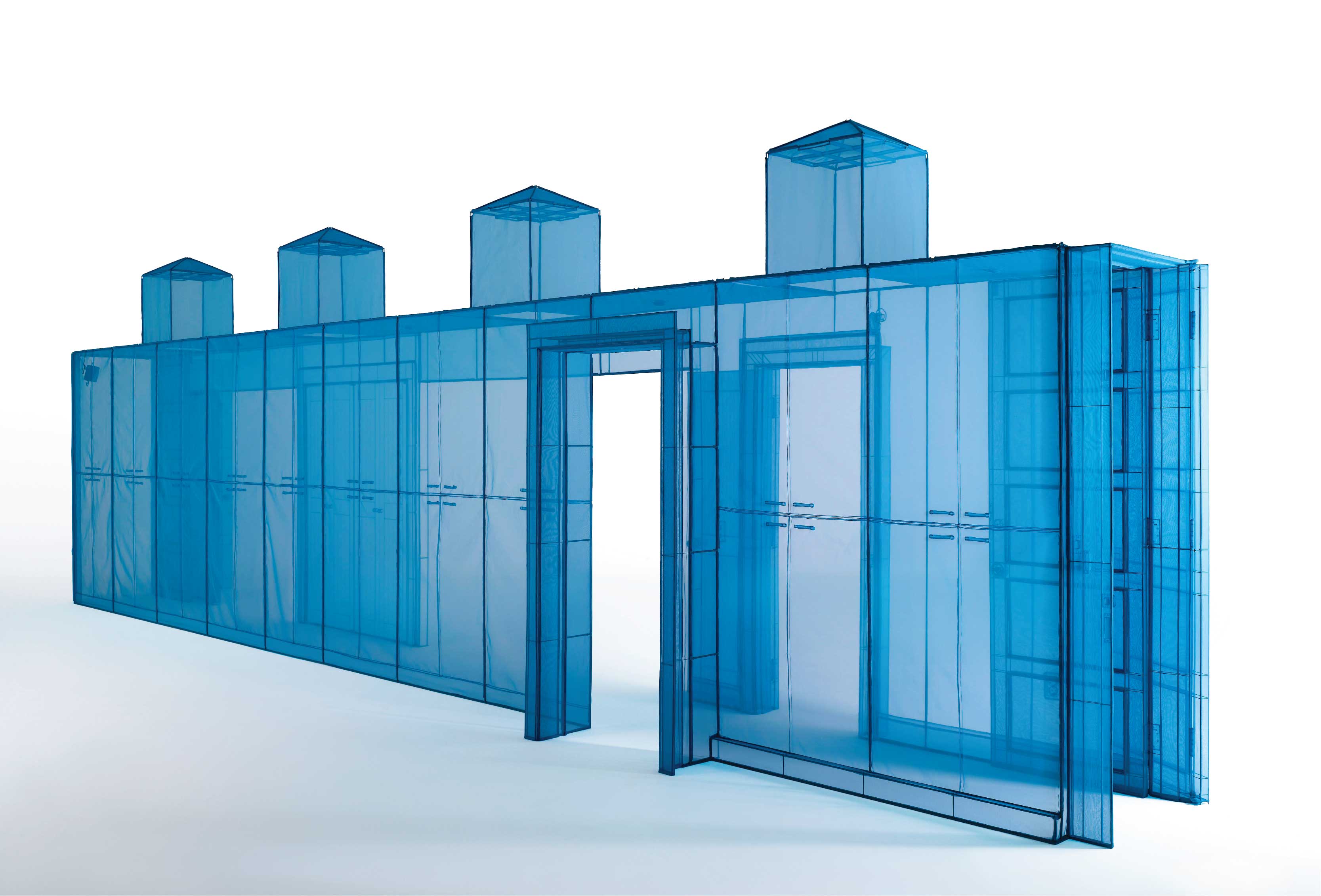
Global Issue
Global Issue: Editor’s Letter
Editor’s Letter
John Fraser
The Michelin-starred chef has a story to tell you through his cooking
Pundy’s Picks for Conscious Travel
Six tips for considered and conscious travel
Genmaicha Martini Recipe
The classic martini plus the health benefits of green tea
The Spread Love Project by Nicholas Konert
How Nicholas Konert’s rainbow heart design became an international icon
Wade Davis
Anthropology is the antidote to today’s nativism says the scholar and author
Carla Sozzani
The future of retail according to the founder of legendary concept store 10 Corso Como
The Art of Migration
The power of art to inspire empathy and social action
John Pawson
Zen Buddhism and minimalist purity drive the celebrated architect
Amy Duncan
As the CBD line Mowellens expands into skincare, its founder shares the personal story behind her company
Sila Sveta
Moscow’s favorite media studio finds the perfect balance between art and commerce
David de Rothschild
In his calls for environmental awareness, the modern explorer finds harmony between man and nature
Can Fashion Be Sustainable?
Shaping a better world through what you buy – or don’t
Brendon Babenzian
Supreme’s former creative director wants to end the cycle of consumption with his new brand Noah
Lily Kwong
Nature invades the urban jungle in the landscape designer’s expansive projects
House of Yes
Behind the scenes with the Bushwick nightlife collective promoting inclusivity and consent culture
Vivie-Ann Bakos
DJ Extraordinaire
Chez Dede
A medium in which two world-traveling, adventurous spirits absorb the globe’s vast curiosities and share them freely
Jesse Israel
A meditation guide for extraordinarily large groups
Liya Kebede
The Ethopian model, activist, and entrepreneur uses her label Lemlem as a force for change

Twenty-eight years ago, everyone thought Carla Sozzani was crazy. “My father, especially,thought I was crazy,” the visionary and founder of the cult concept store 10 Corso Como relates over the phone from Milan. She had just quit her job at Vogue Italia after nineteen years in the magazine industry and wanted to start
a gallery in an abandoned garage in a neighborhood populated by fruit stands and car repair shops.
“When I opened the gallery, there was no photography. Actually, photography was not recognized as art, so it was not a usual thing,” says Sozzani. “And because we opened the place outside the city in a garage—this was not considered logical at the time—it was different.” The gallery, which showed Steven Meisel, Man Ray, and Annie Leibovitz long before the Italian art world had accepted photography as a legitimate medium, quickly transformed into what is now known as 10 Corso Como, a curated store that is at once a place to take in new work, sit with friends over an Aperol Spritz in the garden and
peruse the latest art tomes, or browse the longtime editor’s pick of Comme des Garçons, Margiela, and Alaïa (who also happened to be her closest friend). In other words, it was the birth of the modern-day concept shop.
It’s hard to imagine a world without luxury
experiential retail today, but in 1991, that was the case. Almost thirty years later, the world has caught up, with influential concept stores like colette, Dover Street Market, Opening Ceremony, and The Store and even experiential wings within
mass department stores, which combine clothing, furniture, and dining with niche themes—becoming a norm. Just this summer, for instance, Nordstrom collaborated with Los Angeles boutique Union to create a streetwear-themed mini-concept shop within select stores. Such a development would have been almost inconceivable before 10 Corso Como, which today has expanded to locations in Seoul, Tokyo, Shanghai, and Beijing. The New York flagship celebrates its one-year anniversary this fall. “The challenge is every day,” says Sozzani. “When you are confronted with the public, with the people, it’s an everyday examination—which is probably what I like. You cannot just sit in an office: You are with the public, you are with the people.”
Having served as a pioneer for decades, Sozzani doesn’t worry about the challenges retail is currently facing, including the rise of e-commerce (CNBC reported recently that over 12,000 stores are expected to shutter in 2019 in the US alone) and the hypersaturation of Instagram/influencer culture. “I think changes happen in your life,” she explains. “It’s the evolution of everything,
so change is normal, but I think it’s more important for me to be authentic.”
That, perhaps, is the biggest lesson she has to share: In the end, you can chase the market or happen upon the next big thing by chance, but without the strength of your identity, nothing is sustainable. “I think it’s the same as when I was young, the same starting over and over,” she muses. “I think you have to look for integrity, try to get your vision, not to follow too much, but listen, listen very good. But at a certain point, you really have to find your way, never mind if it’s for a job, never mind if it’s the way you dress—you need to find your way and to know who you want to be.”
Looking forward, Sozzani has no plans of slowing down. “It’s my life, my curiosity. I hope I will never lose it,” she says. She’s interested in sustainable design coupled with quality craftsmanship. She still travels widely. And, in keeping with the importance she places on personal identity as the key to prolonged success in retail, she would like to teach young people and help them shape their own distinct visions. “I do think that as 10 Corso Como is going to be
thirty years old, I’m considering my journey and I think what I would really like to do now is go into academia and try to teach and give and share my experience with young people,” she says. “I’ve had so many experiences and I would like to share them.”
Art & Culture
The power of art to inspire empathy and social action
Zen Buddhism and minimalist purity drive the celebrated architect
Moscow’s favorite media studio finds the perfect balance between art and commerce
Behind the scenes with the Bushwick nightlife collective promoting inclusivity and consent culture
DJ Extraordinaire
A medium in which two world-traveling, adventurous spirits absorb the globe’s vast curiosities and share them freely
A meditation guide for extraordinarily large groups
Experiences
Moscow’s favorite media studio finds the perfect balance between art and commerce
In his calls for environmental awareness, the modern explorer finds harmony between man and nature
Behind the scenes with the Bushwick nightlife collective promoting inclusivity and consent culture
DJ Extraordinaire
Food & Drink
The Michelin-starred chef has a story to tell you through his cooking
Six tips for considered and conscious travel
Personalities
Style
The classic martini plus the health benefits of green tea
How Nicholas Konert’s rainbow heart design became an international icon
As the CBD line Mowellens expands into skincare, its founder shares the personal story behind her company
Nature invades the urban jungle in the landscape designer’s expansive projects
The Ethopian model, activist, and entrepreneur uses her label Lemlem as a force for change

